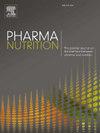全球监管趋势和比较见解:美国、印度和欧洲的营养药品
IF 2.4
Q3 NUTRITION & DIETETICS
引用次数: 0
摘要
目的:本综述旨在分析和比较美国、印度和欧盟(EU)营养保健品的监管框架。主要的研究问题是探讨不同的法规如何影响营养保健品的全球市场准入和安全,同时确定协调国际法规的潜在途径。方法以美国《膳食补充剂健康与教育法》(DSHEA)、印度食品安全与标准局(FSSAI)和欧洲食品安全局(EFSA)的主要监管文件和指南为研究对象,进行文献综述。该研究调查了这些地区的市场准入程序、安全标准、毒性测试和健康声明要求。结果研究结果表明,监管方式存在显著差异。美利坚合众国(美国)强调上市后监督和制造商对产品安全的责任,而印度则遵循更简单的登记程序。欧洲要求对健康声明进行严格的上市前批准和科学验证。这些差异阻碍了营养保健品与国际市场的无缝整合。该综述强调了全球营养药品法规统一的日益增长的需求。统一的指导方针可以提高产品安全性,促进进入国际市场,并培养更大的消费者信任。监管趋同对于确保营养保健品行业的可持续增长至关重要。本文章由计算机程序翻译,如有差异,请以英文原文为准。
Global regulatory trends and comparative insights: Nutraceuticals in the USA, India, and Europe
Purpose
This review aims to analyze and compare the regulatory frameworks governing nutraceuticals in the USA, India, and European Union (EU). The primary research question explores how varying regulations impact the global market entry and safety of nutraceutical products, while identifying potential pathways for harmonizing international regulations.
Methods
A comprehensive literature review was conducted, focusing on key regulatory documents and guidelines from the Dietary Supplement Health and Education Act (DSHEA) in the USA, the Food Safety and Standards Authority of India (FSSAI), and the European Food Safety Authority (EFSA). The study examined market entry processes, safety standards, toxicity testing, and health claim requirements across these regions.
Results
The findings indicate significant differences in regulatory approaches. The United States of America (USA) emphasizes post-market surveillance and manufacturer responsibility for product safety, while India follows a simpler registration process. Europe mandates rigorous pre-market approval and scientific validation of health claims. These disparities hinder the seamless integration of nutraceutical products into international markets.
Conclusions
The review highlights the growing need for harmonization of nutraceutical regulations globally. Unified guidelines could improve product safety, facilitate international market entry, and foster greater consumer trust. Regulatory convergence will be essential to ensure the sustainable growth of the nutraceutical industry.
求助全文
通过发布文献求助,成功后即可免费获取论文全文。
去求助
来源期刊

PharmaNutrition
Agricultural and Biological Sciences-Food Science
CiteScore
5.70
自引率
3.10%
发文量
33
审稿时长
12 days
 求助内容:
求助内容: 应助结果提醒方式:
应助结果提醒方式:


